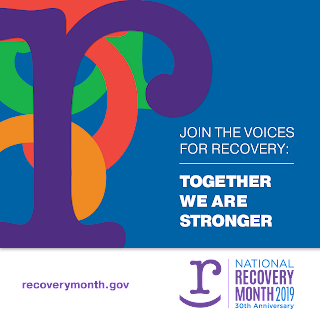September is an essential time of the year for people working in the field of addiction medicine. It is also vitally significant to men and women working programs of recovery because September is National Recovery Month. At this time, organizations and private citizens promote and support new evidence-based treatment and recovery practices. They also celebrate the improvements made by those who are managing mental and behavioral health conditions.
Long-term recovery is a monumental achievement; healing from mental illness in all its forms takes hard work and steadfast commitment. There is not a singular medication that can lift people from the bondage of addiction and mental illness. Those who hope to heal from such conditions must commit themselves to a program of recovery, and practice specific principles in all their affairs. It is a lifelong endeavor, and there will be obstacles to progress along the way.
Fortunately, men and women can make continued advancement in recovery by working together to keep their illnesses at bay. Support groups are instrumental in achieving one’s personal goal. There is a solution to any problem that may arise because recovery gives people the tools to manage cravings and cope with stressors that can preempt a relapse.
Today, millions of men and women work together 365 days a year to make progress in sobriety and beyond. If you are in recovery, then please acknowledge the gains you have made since putting down drugs and alcohol. National Recovery Month is just as much about celebrating personal recovery as it is about raising awareness that treatment exists, and recovery is possible.
Getting Involved With National Recovery Month

The Substance Abuse and Mental Health Services Administration (SAMHSA) joins forces with more than 200 federal, state, and local government entities to help break the stigma of addiction and mental illness. Such organizations have planned and are hosting events to educate the public about mental health and how it is vital to overall health. Please click here to learn about events and activities in your area.
There are many ways people in recovery can help with National Recovery Month, from sharing personal stories to promoting the benefits of treatment. SAMHSA offers a toolkit to help anyone interested in taking part in Recovery Month. They have created PSAs and social media materials with the hope that people in recovery will share them online.
The National Recovery Month theme is “Join the Voices for Recovery: Together We Are Stronger.” Intending to share and build networks across the country to support recovery, SAMHSA asks people in recovery to be a voice for recovery. The organization welcomes men and women from all walks of life to share their personal story to educate the public about treatment, how it works, for whom, and why.
The experience of people in recovery can serve as an inspiration to the millions of people still living in despair. Sharing stories of recovery shows others that seeking help is not a sign of weakness but instead a symbol of strength. If you feel up to being a voice for recovery, then please click here to learn more.
This observance celebrates the millions of Americans who are in recovery from mental and substance use disorders, reminding us that treatment is effective and that people can and do recover. It also serves to help reduce the stigma and misconceptions that cloud public understanding of mental and substance use disorders, potentially discouraging others from seeking help.
Southern California Addiction Treatment
During National Recovery Month, Hope By The Sea invites you to reach out for help if you or a loved one is struggling with addiction. We offer several programs that aid clients in getting on the road to long-term recovery. Our team of dedicated addiction professionals are equipped to treat those who are contending with co-occurring mental illness as well.
The miracle of recovery can be yours too…welcome to hope!

